TL;DR: A product manager defines product vision and strategy, coordinates execution across teams, and ensures both business goals and user needs are met.
There are over 125,000 open product manager jobs in the U.S. – a clear sign of how sought-after the role has become.
The field is projected to grow by 10% between 2018 and 2028, adding over 33,000 new roles along the way. With demand climbing steadily, it’s worth taking a closer look at what product managers actually do and why their work matters.
What is a product manager?
A product manager (PM) sits at the intersection of business strategy, technology, and user experience.
On the business side, they define how the product will support growth, revenue, and market positioning. On the technical side, they collaborate with engineers to ensure solutions are feasible, scalable, and innovative. On the user experience side, they champion customer needs and usability to make sure the product is intuitive and valuable.
This unique overlap makes PMs translators across functions – turning business goals into technical requirements and user insights into design priorities.
For example, a PM might align leadership’s objective of boosting retention with engineering’s ability to build push-notification features, while ensuring the UX team creates flows that feel seamless.
In practice, this means the product manager is responsible for guiding the entire product vision and bringing teams together to deliver meaningful results.
Difference between product vs project vs program management
Before we dive into the details of what a product manager is responsible for we need to clear up a common point of confusion.
Project managers and program managers (while often also shortened to PM) are NOT product management roles. Project managers focus on managing teams to ensure a project is delivered, and program managers strategize how org-wide programs or initiatives can be completed.
For more details on the difference, check out our breakdowns here and here.

What are the key responsibilities of a product manager?
Product management is not a one-size-fits-all role.
A PM in a lean startup may be deeply involved in hands-on execution, whereas in a global enterprise, the focus shifts toward strategy, scale, and cross-functional alignment.
Yet across companies of every size, certain responsibilities remain constant.
Here’s a clear breakdown of the core duties every product manager should master.
Product-led growth
The backbone of any product manager’s decision is product-led growth. This means that the product should ultimately speak for itself. The product does what people want it to do, when they want it to, and then they recommend it to people they know. A product-led approach relies on word-of-mouth marketing and a great PM!
Product strategy
A product manager reports to internal stakeholders to share progress updates across teams and identifies the business goals that the product will fulfill.
PMs also communicate with external stakeholders such as the media and customers. This lets people know when the product will launch and creates buzz around the release – helping the product speak for itself.
Product vision and goal setting are also part of a PM's role. This involves knowing what the product might look like in the future and ensuring goals are realistic, but challenging to motivate their team to succeed.
Another aspect of product management strategy is prioritizing the product release roadmap. This involves deciding on the most important features to update or improve and working out the timeline of these releases.
This may also involve competitor research to avoid launching at the same time as a larger competitor. And that’s without mentioning all the work that goes into planning, developing, testing, preparing, and actually releasing the product or update!
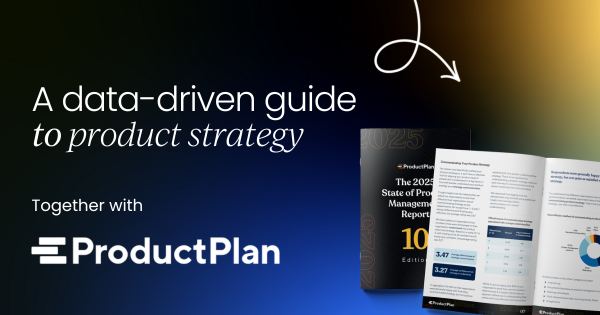
Execution
A PM is the ultimate team leader – they rally their team together to gain results, empower them to make decisions, and are a sounding board for success and failure. The PM role also includes working across departments to keep everyone in the loop and on track to get the product ready for and onto the market!
Product managers are also product experts. They may not be super technical, but understanding what the product does, how it does it, and what competitors are doing is crucial to being a successful PM.
User experience
And as if all that wasn’t enough… A PM also collects and analyses customer feedback to improve user experience. This includes determining new product features and advocating for what customers want to see next in the product.
This is a balancing game between what customers want to see, the vision for the product, and the ROI of any new features.

What are the day-to-day tasks of a product manager?
If you’re thinking that sounds vague, here are some of the day-to-day tasks of a product manager.
Create the product vision
What is the product? What value does it provide customers? How will the product look in three years?
Product managers can answer each of these questions.
Okay, so PMs can’t predict the future, but they do have an aspirational vision of what the product could ideally look like in three years. And a plan to achieve that vision – barring any major market complications.
Define goals and check metrics
A PM understands the business and technical goals the product should be achieving and defines these goals and OKRs clearly so that their team knows if they’re on track.
The product manager also regularly checks in with team members to ensure they are meeting their goals – or to provide support if goals were missed.

Motivate your team
Actively engaging with their team and sharing positive feedback, a PM helps to create a positive and motivating work environment. Celebrating both the successful and the not-so-successful tests, a PM knows just how to keep the team moving forward!
Test programs
Whether it’s testing the product themselves, asking colleagues in other departments to test, or gathering external users to test programs, product managers ensure each program is tested for usability and functionality.
A PM will then collate and sort through the feedback to provide useful input for the team.

Optimize customer experience
After all that testing, a PM gets to work on improving and optimizing the customer experience.
This involves sifting through a ton of positive and constructive feedback, then deciding what the biggest user issues are and how best to resolve them.
Product managers also have to prioritize changes by importance and ensure the most pressing user experience issues are sorted quickly.
The product lifecycle and a product manager’s role
A product manager’s work doesn’t happen in isolation – it evolves with the stages of the product lifecycle. While responsibilities may shift depending on the company, most PMs engage with each of the following phases over the course of their career.
Discovery and research
In the first stage of a product’s lifecycle, product managers are responsible for conducting research and discovery into what will make the product successful within the market.
This involves identifying customer problems, validating opportunities, and gathering insights that inform strategy. PMs might use tools such as customer interviews, surveys, competitive analysis, and market sizing to build a clear understanding of the opportunity.
They also begin to create hypotheses about customer personas and pain points, which will shape the product vision later.
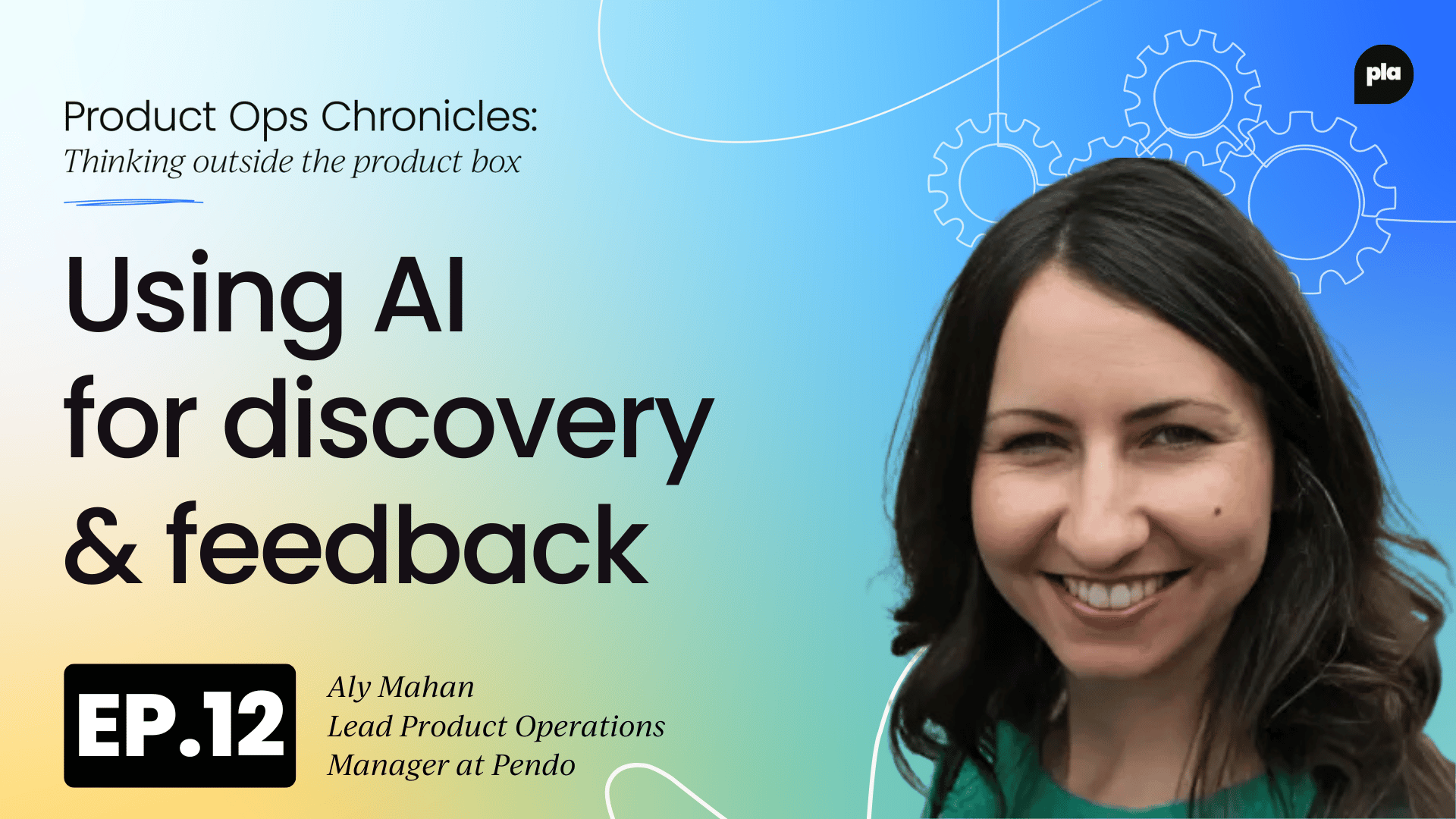
Planning and strategy
Once the opportunity has been identified, PMs can focus on the planning and strategy of the product, so everyone’s on the same page before development.
This involves defining the product vision, creating roadmaps, and aligning teams around business goals. It’s also important to define some goals and KPIs for the product at this stage, so you can measure success later.
PMs often run cross-functional workshops to secure buy-in, prioritize features based on impact vs. effort, and outline an MVP approach.
At this stage, they also ensure alignment between short-term milestones and the broader business strategy, so the product roadmap directly supports organizational goals.

Development and execution
With the vision and strategy set, your team can work with developers, engineering, and design to develop the product based on requirements. It’s a product manager’s job to ensure customer needs are at the forefront of any major decisions, and to decide on the minimum viable product (MVP).
PMs also prioritize backlogs and ensure delivery throughout the project, so the MVP can be delivered to customers on time. They may also conduct user interviews with early prototypes to gather feedback for the team.
In addition, PMs facilitate sprint planning, review sessions, and retrospectives, ensuring that progress remains transparent and obstacles are quickly addressed.
They act as the bridge between technical trade-offs and customer value, making decisions that balance speed, quality, and usability.
Strong communication during this phase is critical – both within the development team and with stakeholders awaiting progress updates.
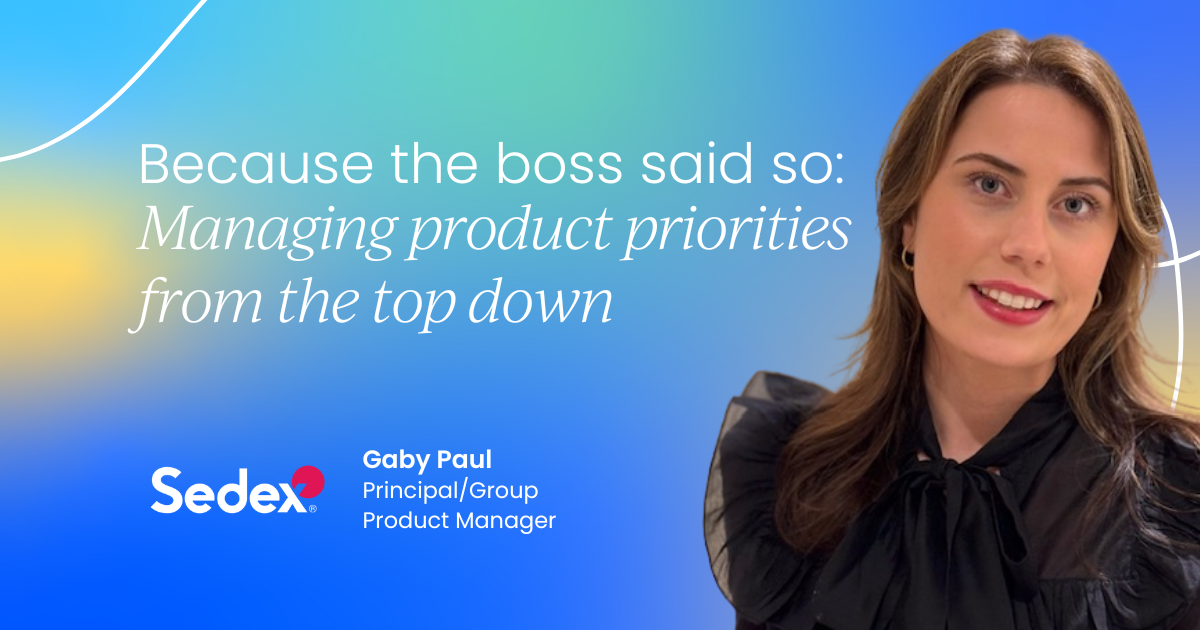
Launch and go-to-market
Once development is complete, the focus shifts to launching the product and ensuring it successfully reaches customers.
At this stage, product managers play a crucial role in coordinating the go-to-market (GTM) strategy, working across marketing, sales, customer success, and operations to make sure everything is aligned for release.
This involves setting clear positioning and messaging so the product resonates with its target audience, and equipping internal teams with the knowledge and materials they need to support adoption.
Product managers may collaborate with product marketers to plan campaigns, with sales representatives to prepare enablement resources, and with customer success managers to anticipate support needs and onboarding flows.
It’s also a PM’s responsibility to define and track launch goals – such as adoption rates, customer engagement, or revenue targets – so success can be measured objectively.
In this way, product managers ensure that the product not only makes it to market but also generates impact from day one.

Growth and optimization
After launch, the product enters a critical phase where the goal is to build momentum, drive adoption, and maximize customer value. At this stage, product managers are responsible for closely monitoring performance against the goals and KPIs defined earlier in the lifecycle.
This involves analyzing product usage data, customer feedback, and market signals to identify what’s working and where improvements are needed. Product managers may prioritize enhancements to existing features, experiment with new functionality, or collaborate with product marketing to refine acquisition and retention strategies.
Continuous iteration is key during growth. By running A/B tests, releasing incremental updates, and responding quickly to customer insights, product managers ensure the product evolves to meet user needs while maintaining a competitive edge.
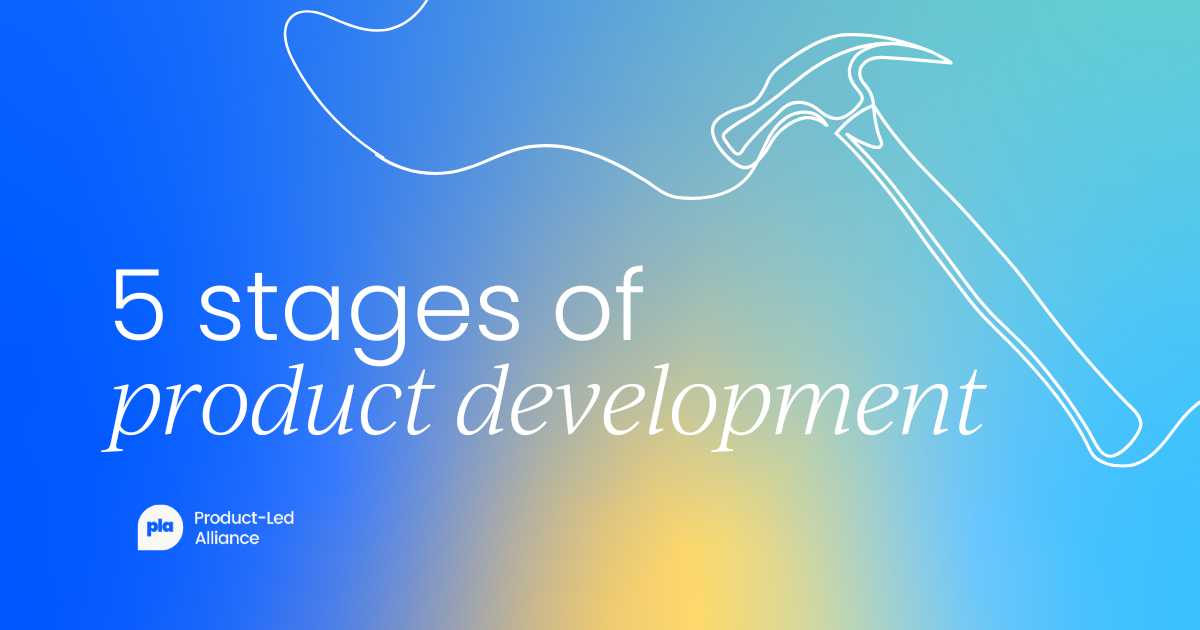
Maturity and sunset
Over time, every product reaches a point of maturity where growth begins to plateau. Here, the product manager’s focus shifts to maximizing long-term value, balancing ongoing investment with other strategic priorities.
During maturity, PMs may concentrate on refining core features, improving efficiency, and maintaining customer satisfaction. They might also explore ways to extend the product’s lifecycle through new integrations, pricing adjustments, or expansion into adjacent markets.
Eventually, some products reach the end of their lifecycle and need to be retired. Product managers are responsible for evaluating when it’s time to sunset a product, communicating this decision to stakeholders and customers, and ensuring a smooth transition plan.
Handling this stage thoughtfully is critical for maintaining customer trust and protecting the brand’s reputation.

What are the most important skills for product managers?
Hopefully, you understand what product management is all about now – and maybe you’re even tempted by this career path! But what skills do you need to be a successful product manager?
Don’t worry, we’ve created a list of some of the key skills every PM needs!
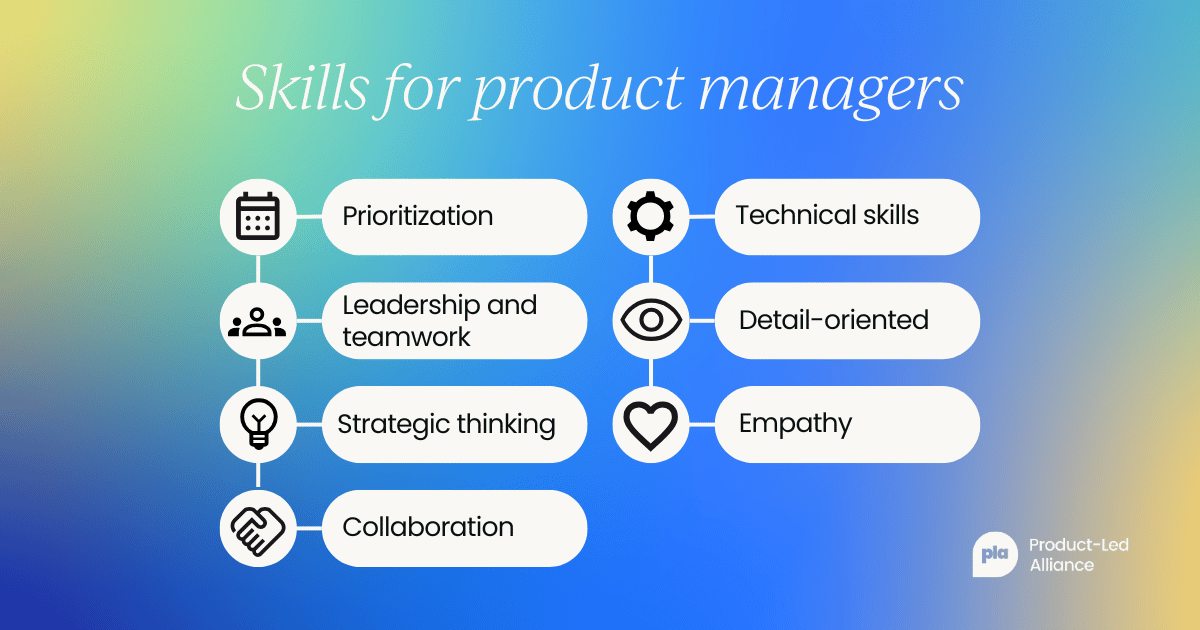
- Prioritization - There’s a lot to balance as a product manager and that means being the master of priorities! There are only so many hours in the day and only so many improvements you can make in any one time period - a PM needs to know when to say “no” and when to say “yes.” Hint: product managers often say “no” much more than “yes”!
- Leadership and teamwork - It may seem like PMs do everything, but in reality, it’s more about pulling everything together. Ensuring a team of different specialists work together smoothly to produce the next big thing is hard work and requires great leadership and teamwork skills!
- Strategic thinking - Strategy is a key aspect of the PM role. Being able to plan long, medium, and short term and critically work through problems is key to being a product manager. A bonus is being able to clearly communicate your thought process to others and back up decisions with data.
- Collaboration - A product manager works with all sorts of departments and, importantly, individuals! Being able to seamlessly collaborate with marketing, sales, engineering, executive management, and external stakeholders is an essential part of bringing products to market.
- Technical skills - No need to be a software engineer, but PMs do need basic technical skills, such as how to perform A/B testing and some SQL language knowledge. To effectively motivate and set goals for your team, it’s helpful to understand what their job involves. That being said, some basic coding skills are also a bonus!
- Detail-oriented - What arrow style should the back button be? Does the enter key send the message or create a new line? Is that the right shade of red? Product managers know all the little details of the product and adjust the small things so that customers love the result.
- Empathy - PMs need to really feel for the customers and understand their problems with the product. Part of the role is ensuring the product talks for itself, so a PM needs to feel the frustrations or joy alongside their customers.

Career progression for PMs
The typical career path for product managers is:
- Associate Product Manager – entry-level product role, often via rotational or graduate programs.
- Product Manager – manages a single product or product area.
- Senior Product Manager – handles larger scope and higher-impact initiatives.
- Group Product Manager – oversees multiple PMs and a broader product portfolio.
- Director of Product Management – leads product strategy for a domain or several product lines.
- Vice President of Product – sets company-wide product strategy and direction.
- Chief Product Officer – executive role leading the entire product organization.
Learn more about career opportunities as a PM in our guide.
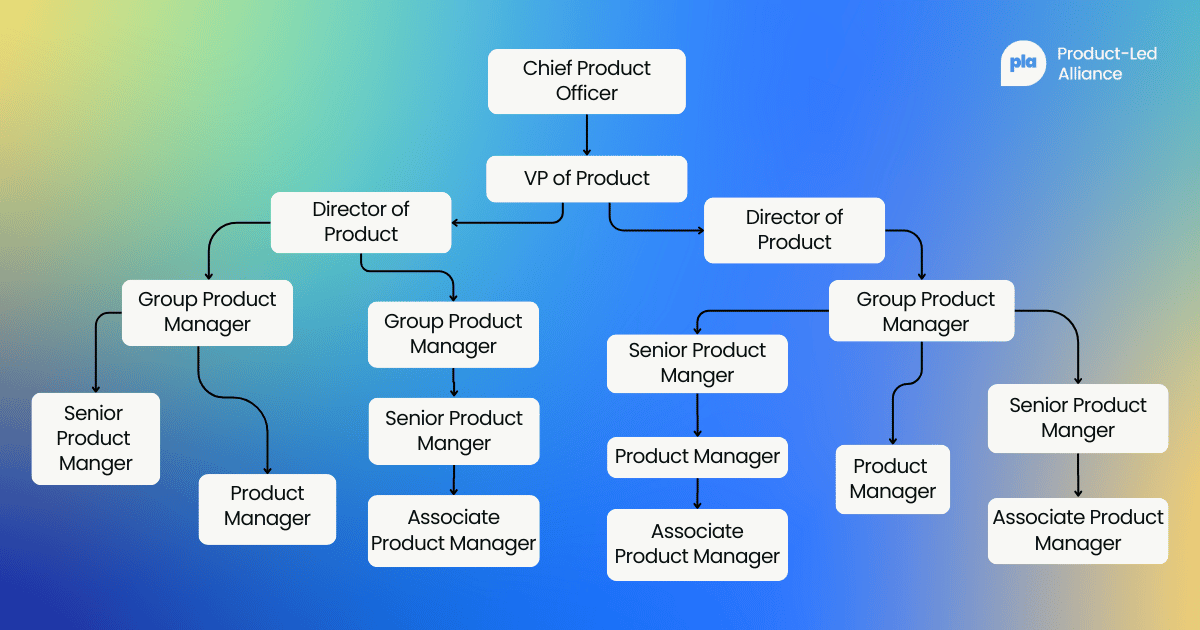
Trends in product management
1. AI and generative AI integration
AI is transforming how product managers approach discovery, decision-making, and execution. From analyzing vast amounts of user data to generating wireframes or draft specifications, AI tools can accelerate workflows and uncover insights that would have taken weeks to process manually.
For PMs, this means less time on repetitive tasks and more time on strategic thinking. To adapt, product managers must learn how to integrate AI responsibly, treating it as an assistant rather than a replacement, while also developing skills in AI ethics, bias awareness, and prompt engineering to ensure the outputs align with business goals and user trust.

2. Product-led growth and outcome-focused metrics
The shift toward product-led growth places greater responsibility on the product itself to drive adoption, retention, and expansion.
Instead of simply shipping features, PMs are now expected to demonstrate measurable business outcomes tied directly to usage and customer value.
This changes the role from being feature-focused to outcome-driven, requiring PMs to master data literacy, experiment design, and customer journey mapping.
Adapting to this trend means prioritizing metrics like activation rates, engagement, and retention over vanity metrics, ensuring the product continuously proves its value in the market.
3. Continuous discovery and experimentation
Gone are the days of lengthy, upfront requirement gathering. Modern product management emphasizes continuous discovery, where customer interviews, prototype testing, and A/B experiments happen throughout the product lifecycle.
This trend changes the product management role from one of periodic planning to ongoing validation. To keep up, PMs must embrace habits of curiosity – regularly talking to customers, running small experiments, and integrating feedback loops into every sprint.
The ability to quickly test assumptions and pivot based on evidence is now a core competency for success.

4. Evolving product managers’ skills and cross-functional leadership
As technology advances, the hardest parts of product management are becoming less about tools and more about people.
PMs today must excel at influencing without authority, aligning stakeholders, and building trust across business, design, and engineering. The rise of fractional PM roles, hybrid teams, and product operations means responsibilities are more distributed than ever.
To thrive, product managers need to double down on strategic communication, storytelling, and stakeholder empathy. Those who can inspire teams and guide organizations through change will stand out as indispensable leaders.
5. Ethics and AI ethics in product management
As products become increasingly data-driven and powered by artificial intelligence, product managers are finding themselves at the center of important ethical considerations.
It’s no longer enough to deliver features that work – PMs must also ensure their products are fair, transparent, and respectful of user rights.
This means thinking critically about how data is collected, stored, and used, and making decisions that protect user privacy and comply with regulations like GDPR or CCPA. For products that leverage AI, additional responsibilities emerge: ensuring algorithms are free from harmful bias, explaining how AI-driven decisions are made, and creating safeguards to prevent misuse.
For product managers, adapting to this trend requires developing a working knowledge of AI ethics frameworks, asking hard questions during discovery and development, and building trust through responsible design.
In practice, this might involve partnering with legal and compliance teams, testing algorithms for bias, or creating transparent onboarding flows that clearly communicate how user data is handled.
By embedding ethical thinking into every stage of the product lifecycle, PMs not only mitigate risk but also strengthen their product’s reputation and long-term success.

Conclusion
To summarize, a product manager helps to balance the business goals, technical features, and user experience of a product at every stage of the product cycle. This ensures the product can thrive when it hits the market, and any improvements can be made effectively.



 Follow us on LinkedIn
Follow us on LinkedIn

















